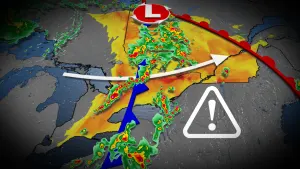
Plans for wireless electric vehicle charging roads are underway in the U.S.
Infrastructure to support electric vehicles is expanding internationally and is aiming to give drivers alternatives to plug-in charging stations.
Support for electrified charging roads is gaining traction in the United States and two states are currently planning to construct their own roads and highways that can charge electric vehicles (EVs) as they drive.
Experts say that electrified roads will address several key limitations with EVs: battery range, charging station availability, and the time needed to park and plug in the EV to a charger. Some of the electrified road technologies transmit the energy wirelessly, while others use electrified rails that connect to EV’s when a movable arm is deployed from the bottom of the vehicle.
In July 2021 the Indiana state government announced that the Department of Transportation (INDOT) and Purdue University will collaborate to create the world’s first contactless charging highway. The technology will be developed by a German startup company called Magment GmBH and uses magnetizable concrete to deliver the charge wirelessly.
“As electric vehicles become more widely used, demand for reliable, convenient charging infrastructure continues to grow, and the need to innovate is clear,” INDOT Commissioner Joe McGuinness said in a press release. “We’re excited to partner with Purdue and Magment to explore incorporating wireless charging technology into highway infrastructure.”

A car driving on a road in the forest during autumn. (Xuanyu Han/ Moment/ Getty Images)
Indiana’s northerly neighbour is also working on plans to expand EV infrastructure. According to The Detroit News, Michigan’s Governor Gretchen Whitmer announced that the state is planning to build an electrified road to charge moving EVs. The road will be one mile long and will be developed through the Inductive Vehicle Charging Pilot, which is a partnership between the Michigan Department of Transportation and the state's Office of Future Mobility and Electrification.
The technology that would be used to electrify the road in Michigan has not been announced and the cost and timeline of this project are not currently known, as reported by the Detroit Free Press.
A number of countries are in varying stages of developing electrified roads. ElectReon Wireless Ltd., an Israeli startup company that was founded in 2013, has built six kilometres of electrified roads in Israel and Sweden. The wireless energy transfer is achieved by copper coils embedded within the road pavement and even though this technology is still in the early stages of development, the company says that the pilot projects in each country has been a success.
Thumbnail credit: darekm101/ RooM/ Getty Images











